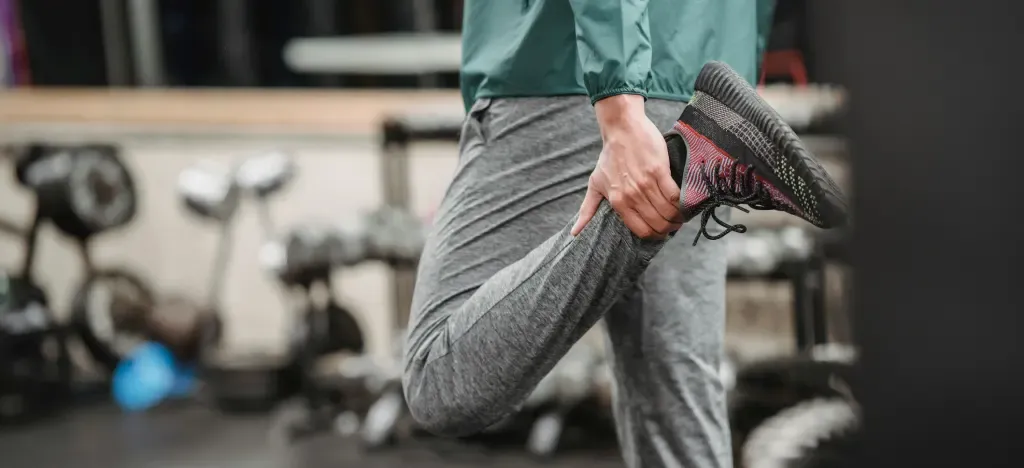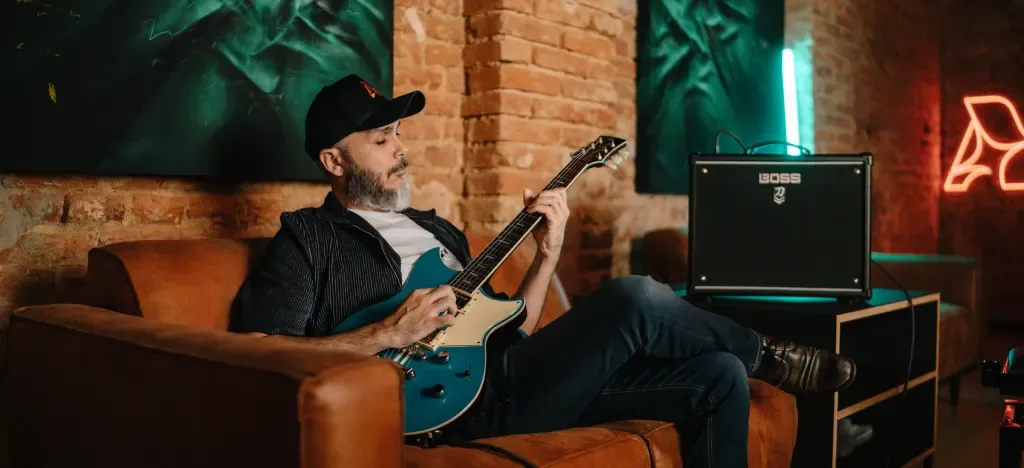Whether you dream of shredding guitar solos, mastering complex piano pieces, or captivating audiences with your vocals, consistent and effective practice is the key. Our guide offers practical tips, proven techniques, and actionable strategies to transform your practice sessions into rewarding musical journeys. Discover how to maximize your practice time, overcome common challenges, and achieve your musical goals.
- Building a strong practice foundation
- Essential practice techniques
- Practice tips for guitarists
- Practice tips for keyboard players
- Practice tips for singers
- How to get the most of your music practice sessions
- Beyond the basics: Achieving your full musical potential
- 11 common practice pitfalls
- Learn more practical tips with our courses
Building a strong practice foundation

Effective practice starts with good habits. Let's look at some tips to help you build a strong foundation for your practice routine:
Prioritize Daily Practice: Consistent, short practice sessions (even 15-20 minutes) are more beneficial than sporadic long sessions. This helps build muscle memory and accelerates learning.
Integrate Music into Your Life: Incorporate music into your daily routine. Hum melodies, mentally visualize fingerings, or listen actively to recordings to reinforce your learning outside of practice time.
Choose Music You Love: Select pieces that excite you, whether it's a catchy pop tune, a soaring classical masterpiece, or a funky bass line. When you enjoy the music, practice becomes less of a chore and more fun.
Essential practice techniques
Mastering the fundamentals
So, you've set aside some time to focus on practising your instrument, sat down and taken a deep breath. Let's look at some principles to follow during your session:

Warm-Up Wisely: Prepare your body and instrument for playing with targeted exercises like scales, arpeggios, and vocalizations.
Prioritize Posture: Maintain proper posture to prevent injuries and enhance performance. Good alignment promotes efficient playing and singing.
Perfect Your Technique: Focus on developing correct technique from the start to avoid bad habits. This includes proper hand position, finger placement, breath control, and bow hold.
Gradual Progress: Break down challenging pieces into manageable sections. Start slowly to ensure accuracy and gradually increase tempo as you master each part.
Listen Critically: Develop your ear by actively listening to yourself play or sing. Record your practice sessions to identify areas for improvement and track your progress.
Find the Joy: Celebrate your achievements, no matter how small. Learning an instrument is a journey, and there will be challenges along the way. Embrace the joy of making music and the satisfaction of overcoming obstacles.
While these general principles apply to all musicians, we'll explore some instrument-specific tips in a bit more depth.
Practice tips for guitarists

Tune Up: Always start your practice session with a properly tuned guitar. Use a reliable tuner to ensure accuracy.
Warm-Up Exercises: Finger stretches, scales, and simple chord progressions can help get your fingers ready to play.
Posture and Hand Position: Ensure you’re holding the guitar correctly to avoid strain and maximize playability.
Focus on Finger Technique: Pay attention to finger placement, pressure, and picking techniques to improve clarity and speed.
Use a Metronome: Practice with a metronome to develop a steady sense of timing and rhythm.
Explore Different Genres: Challenge yourself with various styles like rock, jazz, classical, and blues to become a more versatile player.
► ARTMASTER TIP: Check out our in-depth guides on how to properly tune a guitar and practising with a metronome.
Practice tips for keyboard players

Proper Hand Positioning: Start with correct hand posture to avoid strain and injury.
Finger Exercises and Scales: Incorporate scales and arpeggios into your warm-up routine.
Sight-Reading Practice: If you can read music, regularly practice sight-reading to improve your ability to learn new pieces quickly.
Using Dynamics and Expression: Focus on dynamics, articulation, and phrasing to bring more emotion and musicality to your playing.
Exploring Repertoire: Play a wide range of music from different genres and periods to expand your skills and knowledge.
► ARTMASTER TIP: If you're just starting out and not sure whether to choose piano or keyboard, take a look at our guide — Keyboard vs Piano: which should you choose?.
Practice tips for singers

Vocal Warm-Ups: Start with gentle humming, lip trills, and scales to prepare your voice.
Breath Control Techniques: Practice diaphragmatic breathing to support your singing and increase vocal stamina.
Pitch Accuracy: Use a piano or a tuning app to practice singing in tune.
Exploring Different Vocal Styles: Experiment with various genres to find and develop your unique vocal style.
Recording and Self-Evaluation: Record your practice sessions to identify areas for improvement and track your progress.
► ARTMASTER TIP: Looking to take your singing to the next level? Check out Stevvi Alexander's comprehensive Singing for Beginners course for expert guidance on vocal technique, breath control, and performance tips.
How to get the most of your music practice sessions
Optimize your practice sessions with these effective strategies:
Set SMART Goals
Make your practice objectives Specific, Measurable, Achievable, Relevant, and Time-bound. This could be mastering a particular section of music, improving your legato technique (playing notes smoothly connected), or increasing your vocal range by a specific number of notes.
Minimize Distractions
Find a quiet, distraction-free space to focus on your music. Turn off electronic devices and choose a practice time that works for you.
Mix It Up
Keep practice sessions fresh by changing your approach. Try different tempos, focus on specific sections, or practice parts of your music with one hand at a time (instrumentalists) or sing different parts of a harmony (vocalists).
Reward Yourself
Celebrate reaching your practice goals! Positive reinforcement keeps you motivated and makes practice something to look forward to. This could be anything from treating yourself to a new music accessory to simply acknowledging your progress.
Beyond the basics: Achieving your full musical potential

Once you have a nice, solid basis, you can build on it. Here are some advanced strategies to help you deepen your understanding and expand your skills:
Explore Music Theory
Understanding music theory strengthens your musical foundation and opens doors to creativity. You'll be able to analyse songs you love, write your own music, and even improvise more confidently. There are many online resources and beginner-friendly music theory books available.
Discover Your Inner Improviser
Experiment with creating your own melodies and explore improvisation techniques specific to your instrument or genre. Improvisation is a fantastic way to express yourself musically and have fun with your instrument.
Challenge Yourself with New Sounds
Don't be afraid to step outside your comfort zone and explore different musical genres. This will broaden your musical horizons and keep things interesting as you develop your skills.
11 common practice pitfalls

Avoiding these common pitfalls will significantly improve the effectiveness of your music practice and help you make real progress:
Inconsistent Practice: Prioritize regular practice sessions, even if short, over sporadic long marathons.
Instrument Packed Away: Keep your instrument readily available to encourage consistent playing. If you see it there in your living room, you're much more likely to pick it up.
Unfocused Practice: Break down practice into shorter, focused sessions with clear goals.
Playing on Autopilot: Continuously challenge yourself with new repertoire and techniques.
Neglecting Older Pieces: Revisit previously learned pieces to maintain your skills and repertoire.
Poor Technique: Pay attention to proper fingering, posture, and hand position.
Tempo Issues: Maintain a consistent tempo throughout a piece and use a metronome to improve accuracy.
Repetitive Practice Patterns: Vary your practice routine to avoid boredom and plateaus.
Rushing Through Difficulties: Slow down and focus on accuracy before gradually increasing tempo.
Ignoring Rhythm: Develop a strong sense of rhythm through consistent counting and practice.
Neglecting Hand Coordination: Practice both hands together to improve overall musicianship.
Incorporating these tips into your routine and keeping a consistent practice schedule, you'll steadily improve your skills. Happy practising!
Learn more practical tips with our courses
Join the countless musicians who have transformed their practice routines and achieved their musical goals.
Try Our FREE 7-Day Trial!


